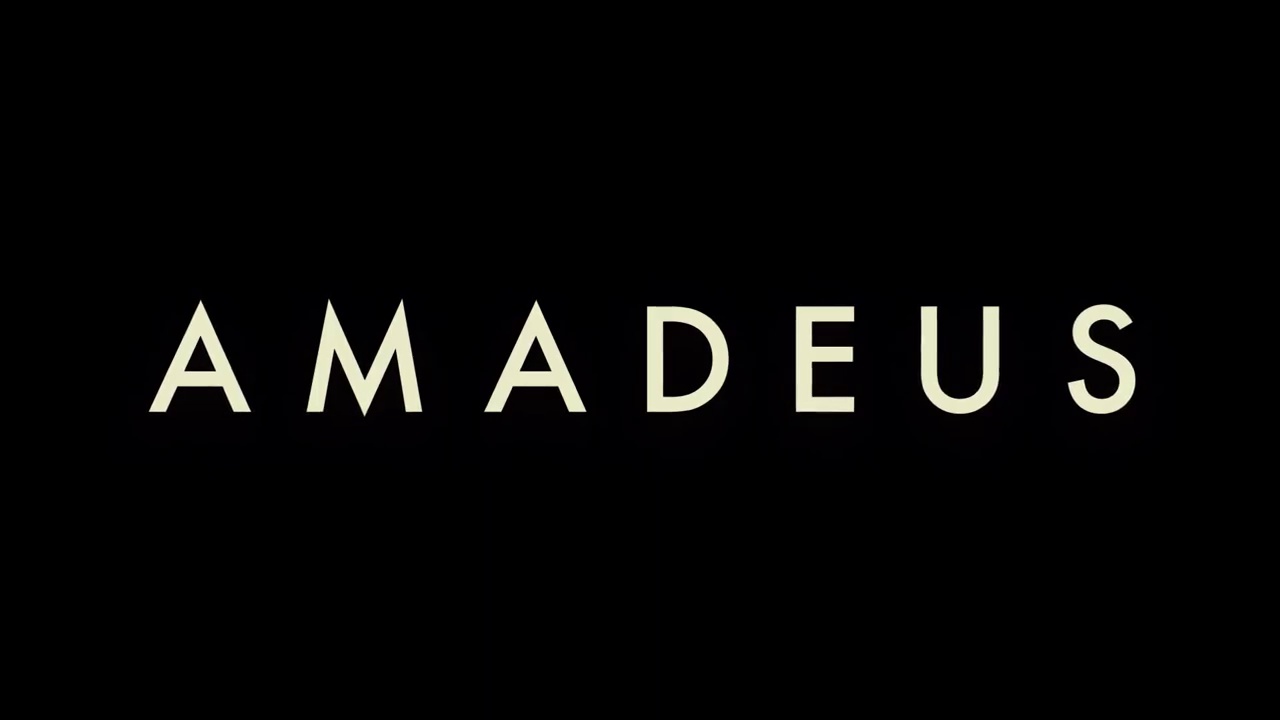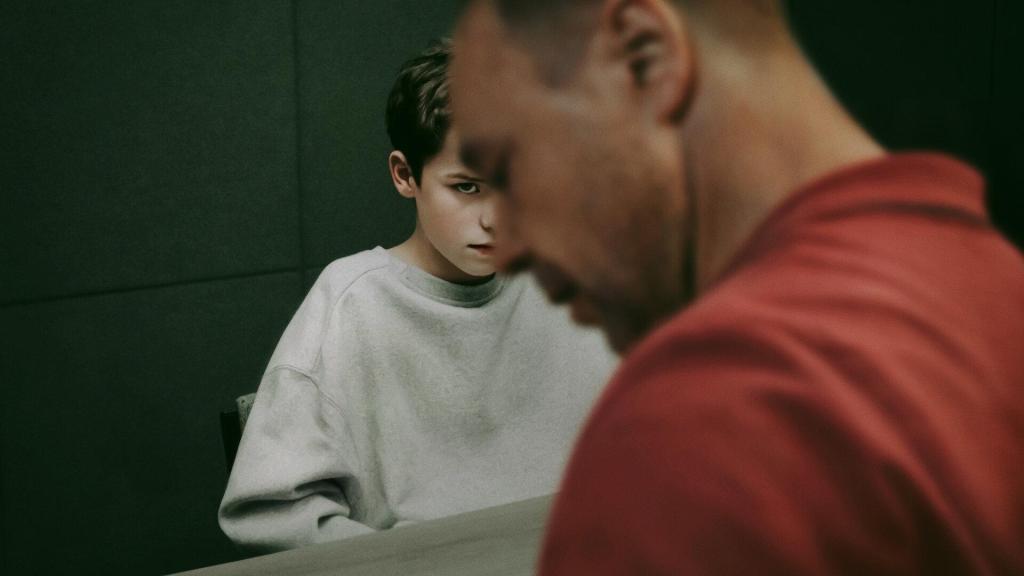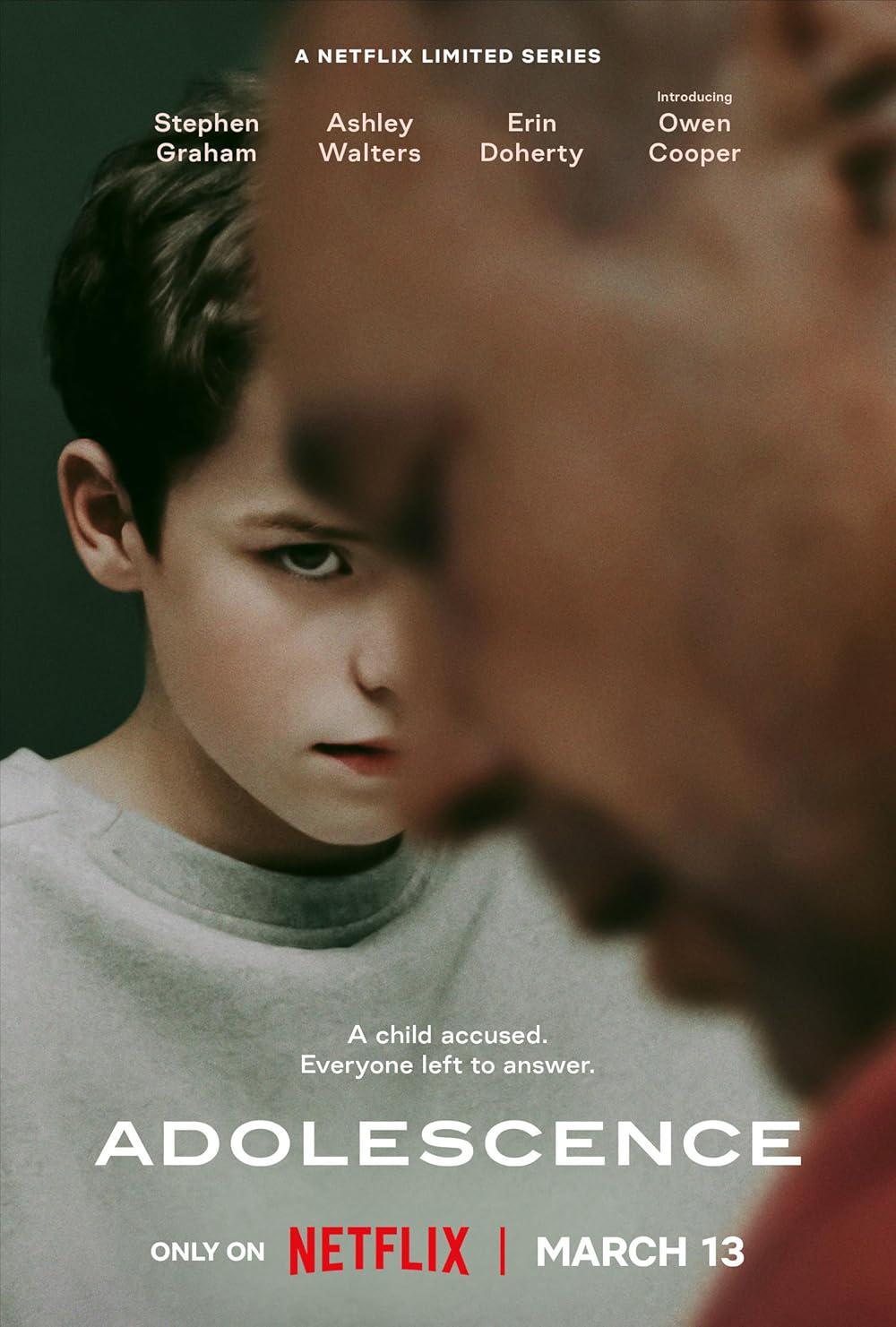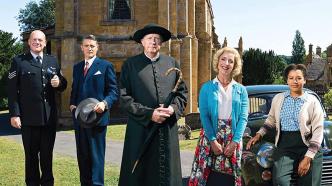
The creators of "Inside No. 9" were right when they said Mark Williams was the right man to play "Father Brown." In the latest season (s08e02), the two characters discuss the role of detective: "Sherlock Holmes and Miss Marple..." "I prefer Father Brown." So coincidentally, so do I.
Father Brown described by GK Chesterton (1874-1936), together with Edgar Allan Poe's Dupin and Conan Doyle's Sherlock Holmes, is called "the world's three major detectives". In terms of reputation, Holmes is clearly far ahead. Far from his day, Holmes is just as at home in the modern world. He had great brains (as all great detectives do, of course) and deep desires; he had a bad temper, but good taste. Sherlock Holmes is very sexy, he is a sexy shark, all the lines of his body are cold and beautiful.
Father Brown is the opposite of Sherlock Holmes—a dough-faced, chubby, plain-looking Roman Catholic priest who wears black robes and carries an umbrella all year round. In the pedigree of classical detectives, he is close to the end of Miss Marple (Agatha Christie's character)-ordinary, inconspicuous, through conversations and observations with people related to the case, based on a deep understanding of human nature, suddenly, Lead us out of the maze. They are all representatives of "evidence reasoning", but Father Brown is the pioneer of this genre earlier than Miss Marple.
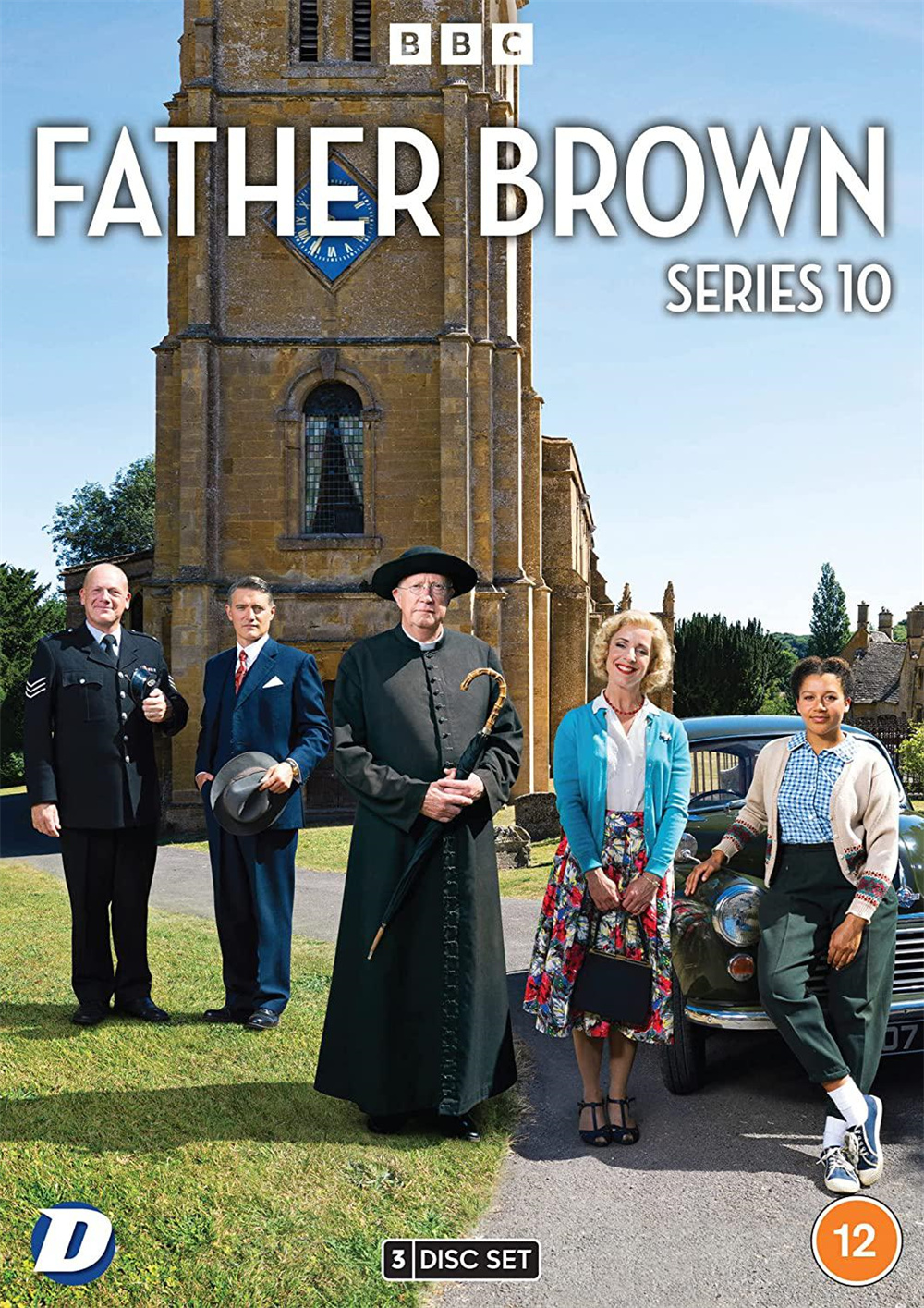
"Father Brown" Season 10 Poster
The tenth season of the long-lived reasoning British drama "Father Brown" (Father Brown) aired this year, portraying a Father Brown who is closer to the author than the characters in the book. Before his sudden death at the age of sixty-two, GK Chesterton was already one of the most respected and popular writers in Britain. He was tall, cheerful, with a big appetite and a large drinking capacity. This person has many friends, often wears a big cloak and holds a sword and staff. He has written a lot and is very active in fields related to writing; besides writing books, his articles are also frequently published in newspapers. One of his important identities is that of a Christian apologist writer. But this is an "apologetic writer" with witty words and brilliant sentences, with first-rate logic and eloquence.
Father Brown, played by Mark Williams, has changed from a stocky figure in the book to a tall and strong man who is more like the author himself. The actors designed cute embarrassing expressions, mischievous eyes, and occasionally childish behaviors for the characters. What hasn't changed is that he remains extremely gentle, polite, and respectful of order. The story in the TV series takes place from the beginning of the 20th century in the book to the 1950s after World War II. In the face of various deviant behaviors such as homosexuality and anarchism, Mark Williams' version of Father Brown showed tolerance and even admiration beyond ordinary people.
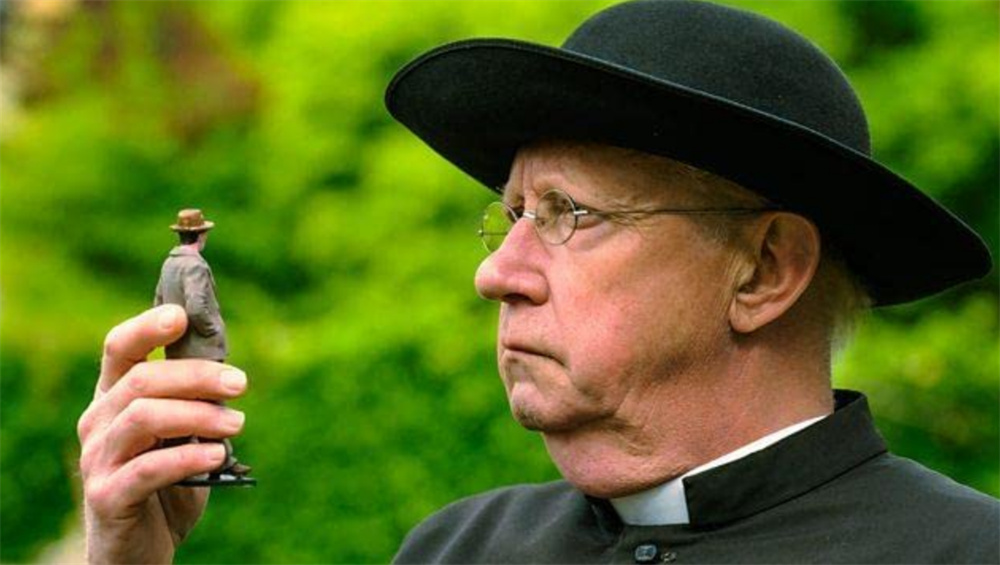
"Father Brown" Season 10 Stills
He has a wide range of knowledge and interests. If there is anything that he didn't hear when listening to the confession, he will supplement it with a lot of reading, listen to everyone without prejudice, and try to get close to all kinds of people's hearts. Father Brown is not the classic detective (like Miss Marple) who is invulnerable. There were many times when he fell on his knees and was killed with his neck thrown out. There were also several times when he ran for his life in a thrilling way wearing a robe that obstructed his hands and feet.
One of the downsides of being a priest is eating too many desserts when you visit houses. Father Brown had a big belly and a sweet tooth. He had a good heart and had seen the darkest parts of the human psyche. That way he can understand anyone. The seemingly jumpy process of solving the case does not seem to require much physical evidence, it is all based on intuition. In fact, it is because he is too familiar with people's desires and fears, and he can quickly see through the little things in the hearts of everyone involved in the case.
A Catholic priest has a "privilege". He does not have to abide by secular laws, but only needs to be responsible to God. In this way, people are willing to tell him secrets and trust him to keep them strictly. Father Brown would occasionally let the murderer go, and spread his hands to the police who were chasing him, showing a helpless expression. Because he believes that although this person has committed a crime, there are excusable circumstances and he should not be sent to the gallows. He will visit and help the murderers caught by him and sent to prison. This enlightened and accessible priest has flexible means, and it is no problem to pry open doors and steal evidence. In the name of God, he wants to make this not so good world into a better world.
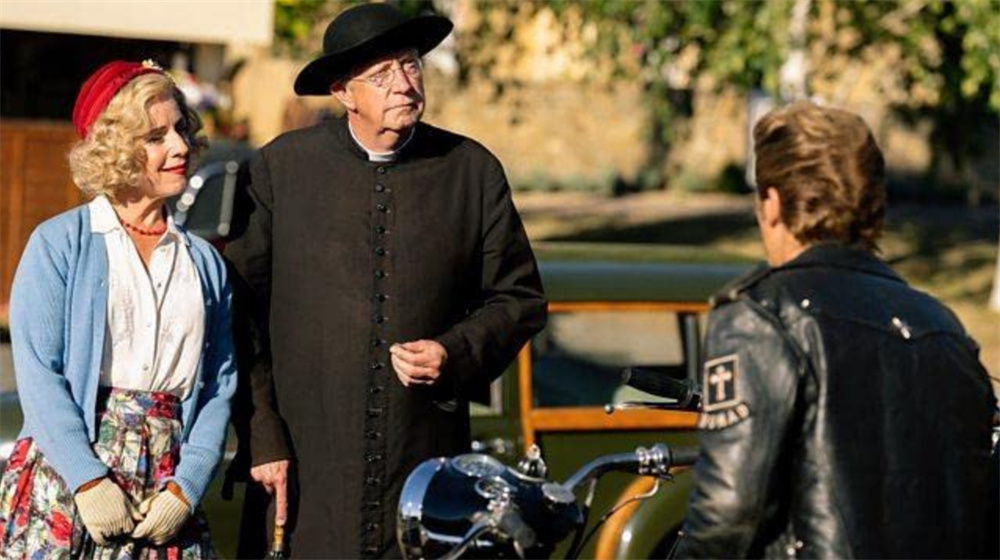
"Father Brown" Season 10 Stills
In today's depressing times, there are far too many detectives on screen who don't love life. They either have no lives of their own, or their lives are miserable, so they have no choice but to forget their misfortunes in solving the case. Although the happy detectives living in the country are an anomaly among modern detectives, fortunately they have never been extinct.
Father Brown loved life and lived it with gusto. He and his companions would often sit around the cramped kitchen of the vicarage, eating the delicious food served warm from the oven by Mrs. McCartney (Sacha Cusack). The rear garden of the house is elevated, facing the gently undulating countryside horizon. Here they drink afternoon tea, celebrate or say goodbye.
GK Chesterton writes in "Orthodoxy": "The reason why these stories say that apples are golden is to remind us of that long-forgotten moment-when we discovered that apples are blue. The reason The description of the wine flowing in the river is to let us remember the clear water flowing in the river in a moment of ecstasy.” The writer wrote so much to let the readers feel in the extraordinary, turbulent and fast-moving world , don't forget the usual stuff.
"I am normal in the precise sense of the word 'normal,'" Chesterton said, "meaning I accept order; a normal appreciation for the order of the Creator and of creation. , to accept creation, life and love is the eternal beauty bestowed by God on mankind.”
Although he died in 1936, he predicted ahead of time: "A modern society with a sad color needs different prophets. The previous prophets reminded mankind that the end is approaching, and today's prophets should remind mankind that the time of death has not yet come." Waistline Father Brown, who is broad and thick with a double chin, tells the audience with a hearty laugh: this life is worth living. Though never stated, Father Brown firmly believes that the world God created deserves to exist.
While the vast majority of his crimes are homicides, with varying motives, Father Brown doesn't believe in pure evil. He is a priest, and he is often ridiculed by people, "You believe in a god who can walk on water and come back from the dead." But in fact, he does not believe that supernatural forces are responsible for causing bloodshed in the world. On the contrary, Father Brown believes that any weird phenomenon has an explainable reason, and it all comes from human handwriting. There are no evil deeds driven by evil spirits, only the joint actions of human heart and coincidence.
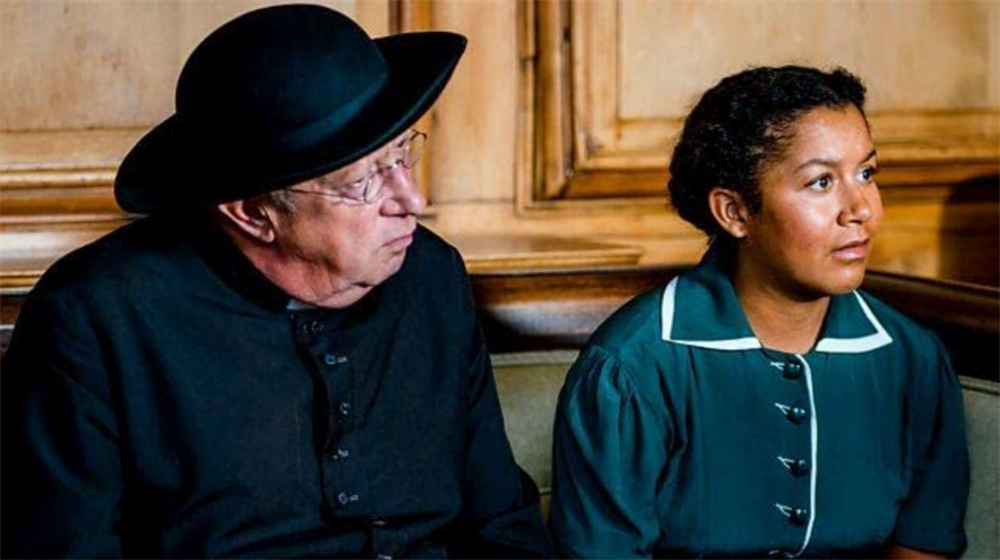
"Father Brown" Season 10 Stills
For the complex and delicate human psychology, "evil" is too general a term. In the ten seasons, probably only a former German Nazi as the victim is portrayed as the embodiment of evil with no humanity at all. The rest of the characters on the stage, whether they are the victim, the murderer, or all kinds of people with ulterior motives, have something to love and hate to do. No matter how small the character is, it seems to have a complete portrait of the character. Through the perspective of Father Brown, we see an encyclopedia-like human form. Chesterton's original work and this version of the TV series continue the mantle of Balzac, Flaubert and other nineteenth-century masters, and show us the various social conditions far beyond the small British countryside.
Chesterton loved detective novels, he loved to write them, he loved to read them, but he didn't believe them. But even if he didn't believe it, he still invented so many tricks. Most of these tricks were famous for the first time before the golden age - secret room, psychological secret room, inverted secret room, alibi, headless corpse, multiple answers, historical reasoning... These unprecedented tricks have a continuous impact on the reasoning world to date. The reason why we feel that Father Brown's tricks are familiar is because generations of reasoning writers have been using them constantly.
One small case after another, most of them are not complicated. After all, more than a hundred years have passed since the birth of "Father Brown". Experienced viewers, often as intuitive as the priest, can guess motives, tricks and murderers. But that doesn't stop me from loving the show at all.
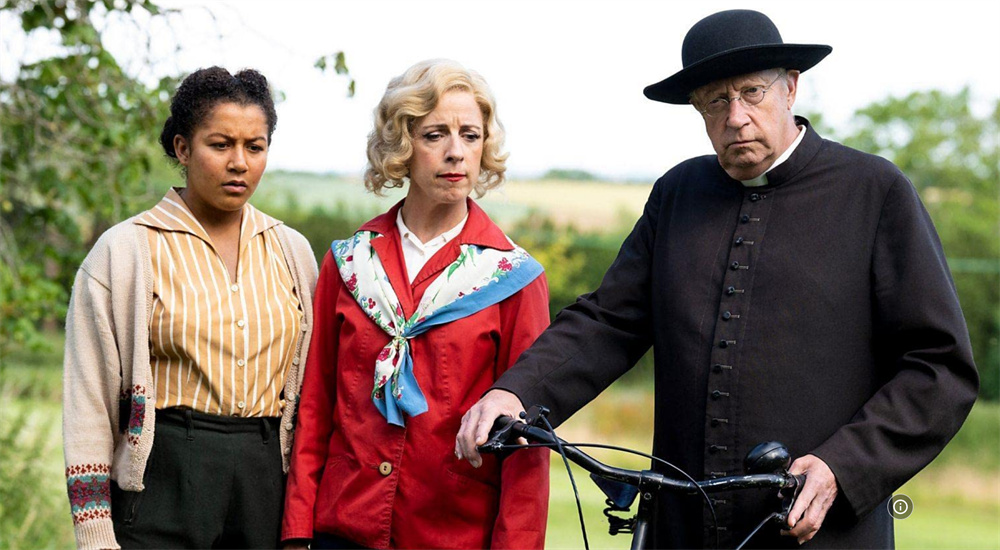
"Father Brown" Season 10 Stills
This 21st-century screenwriter adapted an early 20th-century TV series with a compromise setting in the 1950s. It has a simple self-confidence, unwilling to bow to today's ethos. For example, in one episode, a little girl pretended to lose her virginity under the temptation of an adult, and then pretended to be missing, implying that she had been killed. Most of today's screenwriters dare not write the truth as a play written and directed by the little girl in this department, for fear of offending some groups who cannot afford to offend.
With the protection of the times, it can ignore the shackles of popular vision, and can also fully display the characteristics of a certain class without fear of offending. Of course, the premise is that whether it is a working class with a very low level of education, new immigrants, bottom gangsters, bourgeois or aristocrats, they all have delicate emotions and true humanity. Some characters with obvious class characteristics form a crime-solving team around the priest-Mrs. Smith) and Miss Bunty (Emer Kenny).
Mrs. McCartney, a petty bourgeois, has a broken mouth, loves to gossip, is a bit stingy, competitive, and doesn't trust people who are not of her class; Extricate yourself.
Countess Felicia, glamorous, married without love, full of love all day long (especially in the early days). Aristocratic arrogance aside, she's not perfect. The Countess loves acting, but her acting skills are not good; she is good at singing, but is prone to stage fright;
Sidney Carter, a worker and a gangster, sneaky and flirtatious, is the "closest person to his son" for Father Brown; We were as sad as the priest and Mrs. McCartney when he was going away from home.
Miss Bunty, the niece of Countess Felicia, and her aunt are thin and fat. Bunty is a rebellious rich girl with a wild style. She loves love as much as her aunt, but is braver than her aunt. The baroness always screamed exaggeratedly when she saw a dead body. Bunty (described as a "big garish cow") with a strong body will kick open the door and rush to the scene of the crime.
They each have their own limitations, but they are neither stubborn nor paranoid. For screen characters, paranoia is easy to shine, but understanding is also very cute. It's a pity that the current TV series are always full of paranoia. The faces full of desire or regret are full of bitterness and hatred, and even the humor is full of bitterness. With a nostalgic and warm atmosphere, "Father Brown" tries to make the crime-solving group around the priest as light as possible without weakening the thickness of humanity, and does not lose its vitality because it has seen too much darkness and blood.
Borges greatly admired Chesterton. He appreciates elegant and non-violent intellectual games, and also admires detective novels in an increasingly chaotic world, defending logic, order, truth and order, ensuring that the maze of each story will not disappear into nothingness. The detective leads the reader/viewer out of nothingness and towards the exit.
Maze = amazement. The labyrinthine world of detective work is richer and weirder than we've ever known it to be. Although the story has regrets, especially the case solved by Father Brown is always embarrassing. But it gives us hope - the maze has at least one and only one exit. Outside the exit, the stout Father Brown and his companions were waiting for us.
